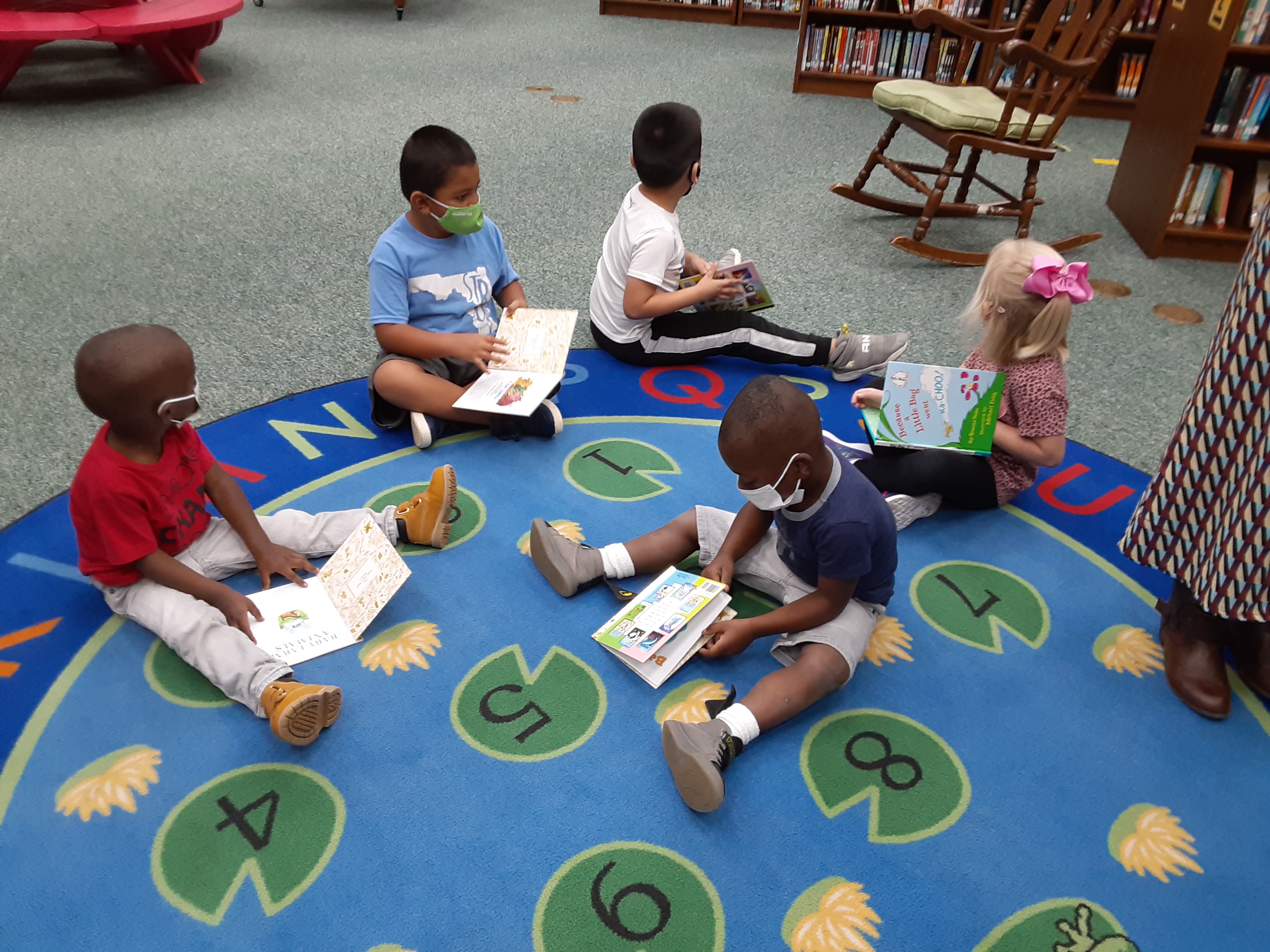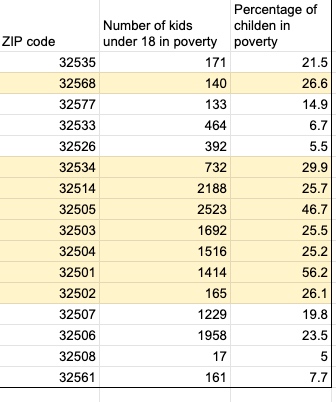Learners to Earners Summit ties early learning to workforce readiness
- June 15, 2021
- / Shannon Nickinson
- / early-learning

No one loves cookies more than Cookie Monster.

So waiting for cookies is hard for the Big Blue Guy. But he can do it — and the reward for waiting patiently is a big plate of chocolate chip goodness.
Turns out, Cookie learned more than not to interrupt his friend being interviewed for the film “No Small Matter,” because he wanted a cookie. He built connections in his prefrontal cortex, the part of his brain he’ll need to solve problems, focus his attention, plan for the future and manage his emotions.
Which means he should nail his first job interview, where his sense of teamwork, collaboration and planning will shine.
The clip from the documentary, directed by filmmaker and writer Danny Alpert, was a highlight of the Florida Chamber Foundation’s Learners to Earners Workforce Solution Summit. The conference drew people in person in Orlando and on livestream to share and collaborate on ways that the business community can build the workforce Florida will need for the future.
Turns out, that workforce development pipeline starts in the first three years of life. That’s been SCI’s driving mission since 2014. The morning of this conference was fully devoted to the early learning space and the role it plays in building the workforce.
Mark Wilson, President and CEO of the Florida Chamber, shared that years ago, he opened another of these conferences with the idea that “talent is the new tax incentive of economic development.”
It’s still true, Wilson shared in opening the program, and is a huge part of the Florida 2030 Blueprint, the state chamber’s plan to grow Florida’s economy from the 17th largest in the world to the 10th largest by 2030.
There are 39 goals to achieve that, built on six pillars. The first pillar, Wilson said, is Talent. And the first piece of the Talent Pillar is — kindergarten readiness, followed by third- and eighth-grade reading, high school graduation, post-secondary certification or degree attainment, and employability skills.
To highlight the challenge of kindergarten readiness for children from low-income households, Wilson referred to The Florida Gap Map — https://www.flchamber.com/floridagapmap/ — a mapping tool that tracks the poverty rate for children and the third-grade reading level rates for elementary schools in every ZIP code in the state.
It shows that schools that serve ZIP codes with higher rates of child poverty have lower rates of third graders reading at grade level. In eight of Escambia's 16 ZIP codes, 25 percent or more of the children who live there, live in poverty.
Alpert’s film is a documentary about the importance of a quality early childhood education experience, built around the time he spent in an early learning classroom, and the testimony of experts about how a child’s brain is wired in the first five years of life.
The film notes that “early brain infrastructure should be taken as seriously as other infrastructure, like roads, bridges and airports. Because early brain development fuels the pathways that will truly build everything else the human mind can conceive of.
The scene with Cookie Monster comes in a section of the film that highlights how executive function is built in the brain. Executive function is the “air traffic controller” of the brain, and it is a function of the prefrontal cortex, which doesn’t start to develop until age 3-5.
For this part of the brain to be strong, a child needs high-quality, language-rich interactions from the beginning of life.
Jenn Faber and The Florida Campaign for Grade Level Reading have collaborated with Alpert’s company to host screenings of the film across the state, from everyone from early childhood educators to lawmakers and advocates.
Their next goal is to push the film out to more parents, so that our children’s first teachers can watch it and learn how important their first interactions are.
FLORIDA OFFICE OF EARLY LEARNING
Shan Goff, executive director of the Florida Office of Early Learning, recapped important steps made in the legislative session to make sure childcare providers could keep their doors open during COVID and to boost reimbursement rates to help these early education providers.
Some 60,000 fewer kids were screened for kindergarten readiness across the state. But data shows again in 2020 as in years past, that children who complete, or even just attend, a VPK year are more likely to be ready for school than students who don’t.
It shows that in 2020:
-- 67% of kids who complete VPK are ready.
-- 59% of kids who attended but didn’t finish VPK were ready.
-- 57% of all public school kids were ready.
-- 45% of kids who had no VPK at all were kindergarten ready.
Providers will see assessment for quality in the coming year, and Goff said, in 2022-2023, a statewide screening program in place of VPK through grade 8 to “look at the trajectory of learning for all of our kids.”
This new comprehensive project would allow families to see the learning path their child is on from the earliest years in school through middle school.
“It's a huge investment by the DOE and we’re excited about that.”
BUSINESS LEADERS INVESTMENT
The Florida Business Alliance for Early Learning Project’s advisory board also spoke.
Kim Reckley, senior VP at PNC Bank; Charles Hokanson, senior VP at Helios Education Foundation; Michele Watson, CEO of Florida Children’s Council.
Reckley shared about how PNC uses a focus on early learning in everything from corporate philanthropy to internal communication with PNC employees and team members.
“We wanted to focus our mission on something that really showed results… Once we heard about the 50 years of science, we focused on that.” Using PNC’s corporate voice in this cause is now SOP for Reckley.
“(PNC) funds a lot of organizations, the first thing I ask them now is what are you doing around early learning,” Reckley said. “Once you share those facts, “they can’t unsee it and unhear it.”
Why does this matter to businesses and employers? “When families with young children feel supported, their productivity (at work) is going to be better, their engagement (at work) is going to be better,” Reckley said.
Watson, who leads the statewide council of Children’s Services Councils, shared that their work is critical to the success of the business community. Watson and her council have been a resource for standing up the new Escambia Children’s Trust, Escambia County’s own CSC, approved by voters in the 2020 election.
“We found that prevention is much easier than intervention,” Watson said. “When we work with families to improve health outcomes, we're leading to the prosperity of the community for businesses as well….That’s integral to the services that our CSCs fund.”
The conference also included focus on teaching teeangers, the skills that employers will look for when hiring; the state college and university system; adult education and workforce shortages; and policies that can support education.

 CivicCon launches with a look at good growth in cities
CivicCon launches with a look at good growth in cities
 Building stronger brains one baby, one parent at a time
Building stronger brains one baby, one parent at a time
 SCI debuts commercial on Early Learning City
SCI debuts commercial on Early Learning City
 Entrecon: World class speakers and an opportunity to sharpen skills
Entrecon: World class speakers and an opportunity to sharpen skills
 PYP Quality of Life survey 2017
PYP Quality of Life survey 2017
 EntreCon Pensacola 2016: A look back
EntreCon Pensacola 2016: A look back
 Leadership tip: getting better employee takeaways
Leadership tip: getting better employee takeaways
 Leadership tip: be interested instead of interesting
Leadership tip: be interested instead of interesting
 Leadership tip: delivering difficult messages
Leadership tip: delivering difficult messages
 Brain Bags boost Arc, Early Childhood Court programs
Brain Bags boost Arc, Early Childhood Court programs